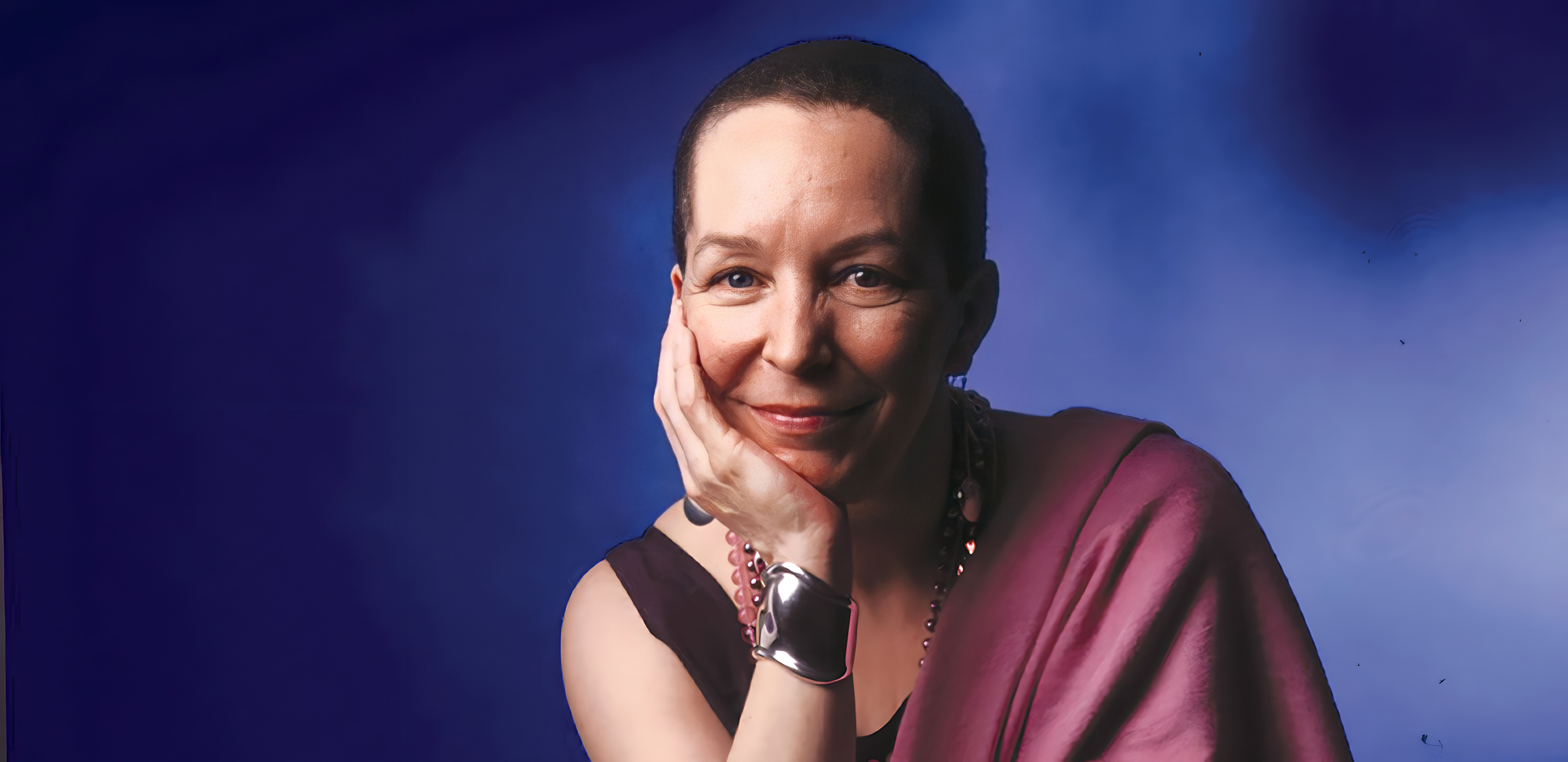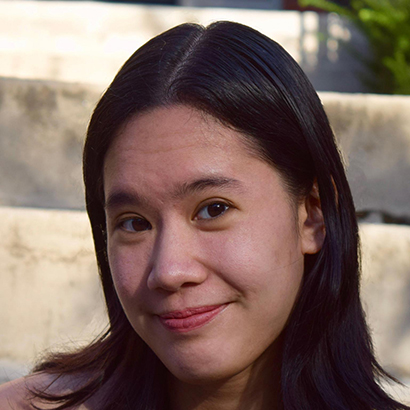
Playwright Pearl Cleage In Her Own Words: A Conversation on Something Moving: A Meditation on Maynard
As we approach our highly anticipated world premiere of Something Moving: A Meditation on Maynard this fall, learn more about the world of Atlanta during Maynard Jackson’s time as mayor through Pearl Cleage’s eyes. This month on the Ford’s blog, we spoke with the acclaimed playwright, author, activist and Atlanta poet laureate about the impact of Mayor Maynard Jackson, the historical significance of this play and her writing process.
Something Moving: A Meditation on Maynard makes its world premiere at Ford’s Theatre this fall. It received a workshop earlier this year through The Ford’s Theatre Legacy Commissions and is written by Pearl Cleage (Blues for an Alabama Sky, Flyin’ West and more).
FORD’S THEATRE: How did the idea and major themes of Something Moving: A Meditation on Maynard come to you when you were first commissioned by The Ford’s Theatre Legacy Commissions?
PEARL CLEAGE (Playwright): I had been thinking about the upcoming 50th anniversary of Maynard Jackson’s election as Atlanta’s first African American mayor. It was a moment that changed the city in so many significant ways and had a major impact on the way the South, especially the Deep South, was perceived. I had worked for Maynard’s campaign and for almost three years as the Director of Communications when Jackson got to City Hall. It was a life-changing experience and gave me an up-close seat at a historic moment. When I was invited to be a part of the Ford’s Theatre Legacy Commissions, my first question was: does 50 years ago count as history because that’s the moment I want to write about? The Ford’s team assured me that 50 years was long enough to qualify.
I wanted to look at that moment as a time when many different communities in Atlanta came together in a way they never had before to elect this man we all felt was absolutely the right person to lead us through this transition period. I wanted to write a play that allowed me to create characters that would represent all the different constituencies that came together to elect Maynard our mayor. I wanted to ask myself (and my audience) what makes a great leader? I wanted to explore what we as citizens owe those leaders once we identify them. In these turbulent times when there is so much distrust of politicians and politics, I wanted to look back at a moment when we trusted the process and had great hopes invested in the outcome of every election. Maynard Jackson was elected less than 10 years after the Voting Rights Act. What did that kind of change mean for a city and its people?

FORD’S THEATRE: Audiences should be aware that though Maynard Jackson is the driving force of this story, he does not appear as an actual character. Can you talk about your decision to focus on the community and voices of Atlanta citizens, to paint a full picture of what it felt like to live in Atlanta during the era of Maynard’s public service?
CLEAGE: I didn’t have any interest in doing a biographical play about Maynard. I was more interested in the people of the city who invested their hopes in his election. I wanted to show the range of people who came together in a way they never had before, across lines of race and class and religion to support this man who seemed to embody our collective hopes and dreams. I hoped by allowing these fictional characters to tell their stories, I could give people an idea of not just what happened, but how it felt to be here, participating, making history with complete awareness of all that meant.
FORD’S THEATRE: How did you bring your own lived experiences as Director of Communications for Maynard into your writing process? What was your philosophy behind deciding which historical moments in Maynard’s life to include and which to leave for audiences to learn more on their own?
CLEAGE: I volunteered for Maynard Jackson’s 1973 campaign as a speechwriter. My first assignment was a speech he was making to Vietnam veterans. My husband and I wrote the speech together and submitted it to him. On the afternoon of the day he gave the speech, he pulled up in front of our little house in a big black Lincoln, climbed out and rang the front doorbell. We were a little intimidated, but when we opened it, he was effusive in his praise of our work. “Best speech I ever had written for me!” he said, and that was it. We couldn’t wait for our next assignment. It was years later when I heard another speechwriter say he had said exactly the same thing to her. We laughed about how like him that was.
In telling this story, I tried to give enough historical information so people who don’t know this part of our history would find a way into the narrative, but not so much that they would get overwhelmed by the details. My hope is that the moments that were so important to me as a citizen/volunteer will also resonate with other people who might not know all the names and dates and specific Atlanta history, but who could be swept along by the power of the story itself and by the impact of the man at the center of that story.
FORD’S THEATRE: We’re thrilled that you’re our first Legacy Commissions playwright to receive a full production, after our workshops earlier this year. Why is it important for Ford’s to give playwrights this artistic incubator to develop new historical dramas?
CLEAGE: Working at Ford’s Theatre is a great honor. The decision by the Ford’s leadership to not simply allow this sacred space to stay stuck in the one tragic moment that defines it, but to allow it to become a living, breathing place that brings Americans together to consider not only our shared past, but the present-day challenges that we face is a profound one. It has always struck me as particularly moving that the last moments of President Lincoln’s life were spent at the theater and that the assassin who changed the course of our history by violence was an actor. I think allowing playwrights to do this kind of work at Ford’s is a living, breathing tribute to the complexity of that historic moment.
FORD’S THEATRE: A diverse range of citizens in Atlanta comes together in collective memory to tell this story. And Maynard himself said that his candidacy was a “candidacy of unity” when he first ran against Herman Talmadge. What is significant about the unity that Maynard championed?
CLEAGE: There can be no real progress in American life until we are able to stop separating ourselves by race, by class, by gender and sexual identity. I think that Maynard’s ability to reach out to people across all those imaginary lines and make them feel seen and understood and included was one of the amazing things about him. He was able to talk to everybody! He respected people who didn’t agree with his politics because, I believe, he could see past all those differences and see them as human beings who needed to find a common vocabulary in order to communicate honestly with each other, find common ground and move forward together. I am so sure that if he were alive today, he would be honored to see this play on the stage at Ford’s. I also believe he would be proud that it was written by his favorite speechwriter!
Something Moving: A Meditation on Maynard runs September 22, 2023 — October 15, 2023. Learn more and get tickets now!
Daniella Ignacio is the Communications Manager at Ford’s Theatre. Learn more about her at www.daniellaignacio.com.

